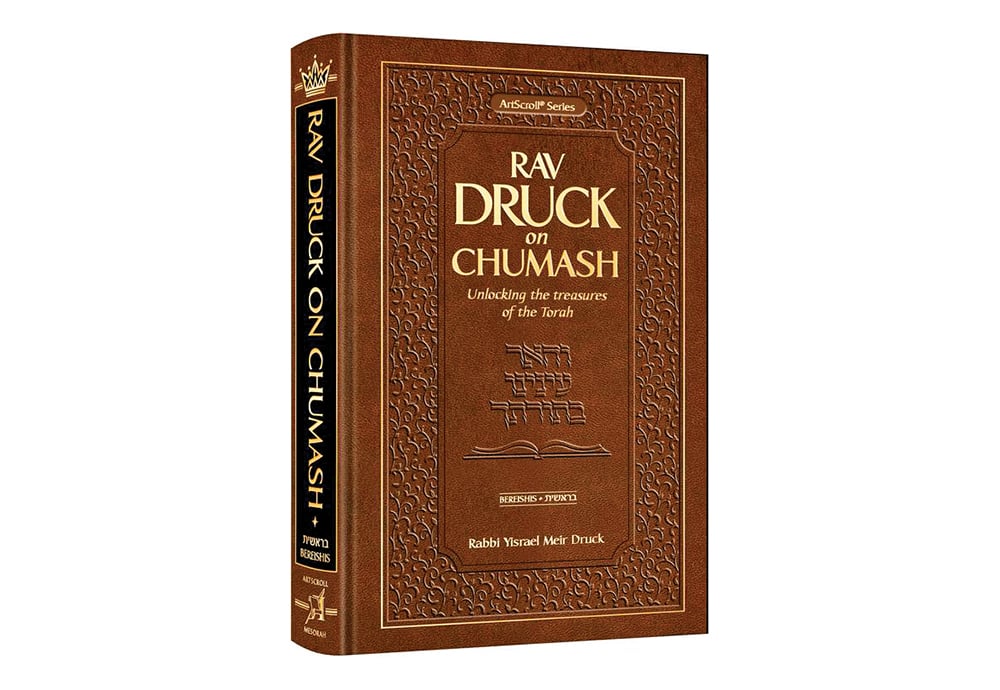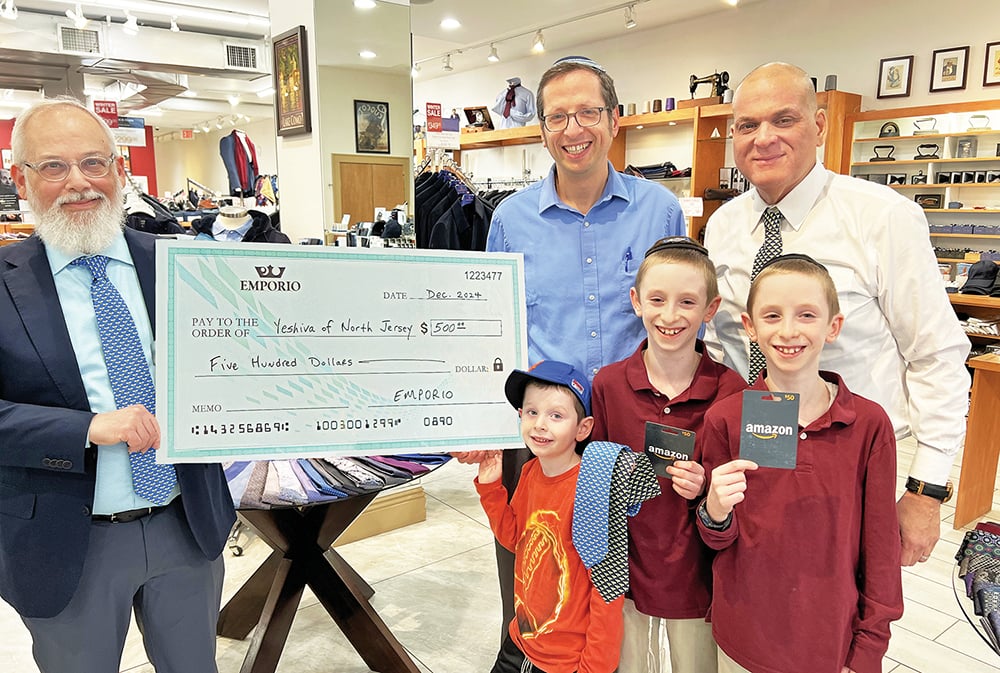Excerpting: “Rav Druck on Chumash Bereishis” by Rabbi Yisrael Meir Druck. Artscroll Mesorah Publications Ltd. 2024. Hardcover. 426 pages. ISBN-13: 978-1422642238.

(Courtesy of Artscroll)
And as for you, take yourself of every food that is eaten and gather it in to yourself, that it shall be as food for you and for them (Berieshis 6:21).
R’ Yehudah said in the name of Rav: It is forbidden for a person to eat before he gives food to his animal, for it is stated first in the verse (Devarim 11:15), v’nasati eisev bisadcha l’vhemtecha, And I will provide grass in your field for your cattle, and only then does the verse state, v’achalta visavata, and you will eat and be satisfied (Berachos 40a).
The phrase v’hayah l’cha v’lahem l’achlah, that it shall be as food for you and for them (the animals), seems to directly contradict the halachah that a person may not eat before his animals. Shouldn’t the pasuk have said that it shall be as food for them and for you?
The Yad Ephraim commentary on Shulchan Aruch (Orach Chaim 167:6) gives the following explanation for why a person may not eat before his animals, based on an account of the Midrash (Bereishis Rabbah 33:1) regarding Alexander the Great of Macedonia.
Alexander went to see a king at the other end of the world, and when the king came out to greet him, Alexander expressed his desire to see how justice was dispensed in that country. The case that Alexander witnessed involved a litigant who told the king that he had purchased a plot of land, and when digging in it he discovered a treasure. He claimed that the treasure belonged to the seller, since he had purchased only the land, while the seller insisted that he had sold the plot with everything in it, so the treasure belonged to the buyer.
Alexander was astounded by this unusual lawsuit, and waited to hear the king’s verdict.
“Do you have a son?” the king asked the first litigant.
“Yes,” he replied.
“And do you have a daughter?” he asked the other litigant.
When he responded in the affirmative, the king ruled that the two should marry their children off to each other and give the treasure to the couple.
Alexander could not believe his ears. Noting his consternation, the king turned to him and asked, “Have I not judged well?”
“Yes, you judged well,” Alexander responded.
“Had such a case occurred in your land,” the king inquired, “how would you have judged?”
Alexander responded, “We would kill both the seller and the buyer, and the kingdom would then confiscate the wealth of both parties for itself.”
The king asked Alexander, “Does rain fall in your land?”
“Yes,” Alexander responded.
“Does the sun shine in your land?” the king continued.
“Yes.”
“Are there animals in your land?”
“Yes.”
“Now I understand why all this prosperity comes to your land,” the king said. “In truth, your land should not be blessed, since your judgment is neither just nor kind, but involves murder and thievery. Now that I hear that you have animals in your land, I understand that this abundance is in their merit alone.”
This idea is implied in the verse adam uv’heimah soshia Hashem, You save both man and beast, O Hashem (Tehillim 36:7), which can be understood to mean, “You, God, save man in the merit of the animals.”
We never know the calculations of Heaven, and at times, people may receive blessing in the merit of the animals. When rain falls and blessing abounds, people assume that this is for the sake of man, and that the animals benefit incidentally. In reality, however, the opposite may be true, for people who are unworthy are actually receiving blessing in the merit of the animals.
We can now understand the precision with which the above pasuk is worded. Earlier, the Torah states, ki hishchis kal basar es darko al ha’aretz, for all flesh had corrupted its way upon the earth (6:12), and Rashi cites Chazal’s observation that even the animals had relations with other species, meaning that even the animals were corrupted.
Clearly, then, Noach was saved from the Flood not due to the merit of the animals, but due to his own merit, as Hashem told him, ki osecha ra’isi Tzadik lifanai bador hazeh, for it is you that I have seen to be righteous before Me in this generation (7:1). The animals, too, were saved in Noach’s merit.
If so, the halachah that one may not eat before his animals did not apply to Noach, for, as the Yad Ephraim writes, the reason for this halachah is that at times, a person does not possess his own merit, and is able to eat only in the merit of the animals. Since the animals were kept alive in Noach’s merit, and not the reverse, this reasoning was not relevant to him, and he was allowed to eat before the animals. The phrase v’hayah l’cha v’lahem l’achlah, that it shall be as food for you and for them, is therefore perfectly understandable.












